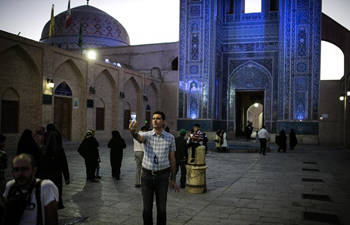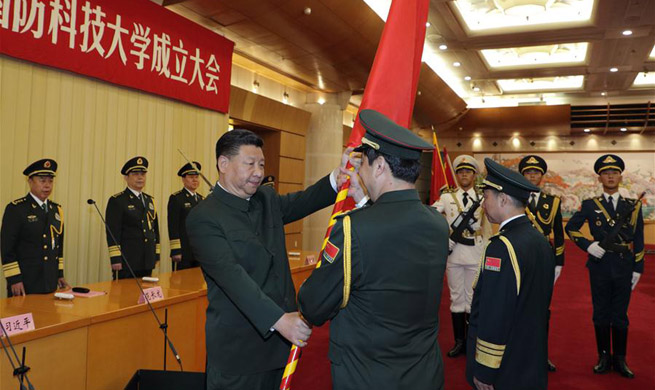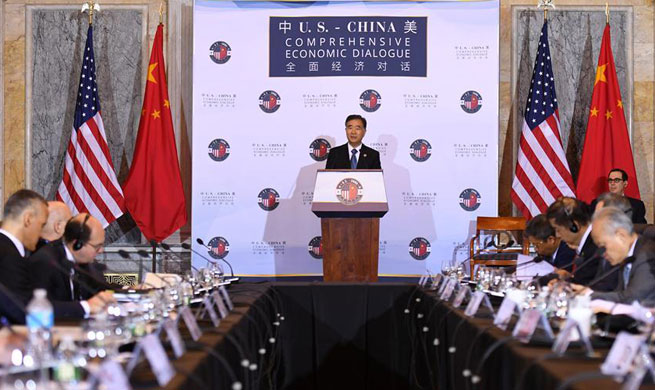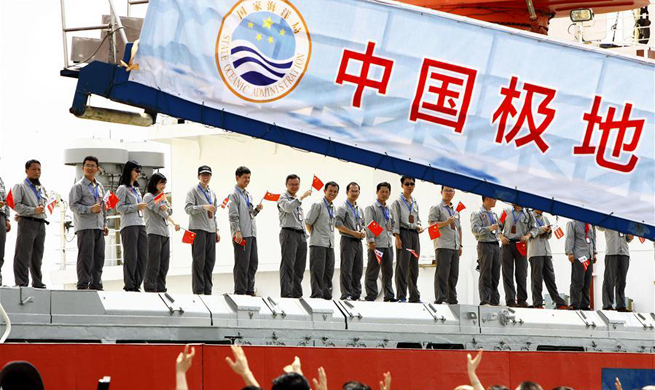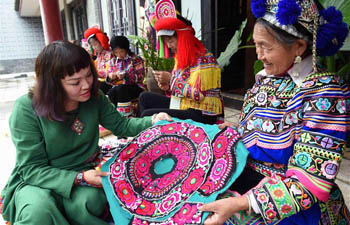by Alessandra Cardone
ROME, July 20 (Xinhua) -- Over 40 people were convicted of corruption by an Italian court here on Thursday, at the end of an unprecedented trial against organized crime in the Italian capital.
Overall, some 46 defendants faced charges of corruption and mafia-related crimes for being part of a network that siphoned millions of euros of funds by rigging public contracts.
Some 41 of them were found guilty of corruption, and five acquitted. However, none of the defendants were convicted of mafia association.
The leader of the gang -- 59-year-old, one-eyed, former neo-fascist Massimo Carminati -- was given 20 years in prison. His right-hand man Salvatore Buzzi -- a convicted murder, and later chief of leftist cooperatives operating in various social activities -- was sentenced to 19 years in jail.
The two men were the kingpins of the network, which involved not only common criminals and entrepreneurs, but also employees and officials in Rome's municipality, and local politicians from across the spectrum.
The gang infiltrated various sectors of the local administration by rigging public tenders, including those for waste collection, migrant housing centers, and public green maintenance.
Several officials and politicians in previous administrations were also given long prison terms, including former CEO of Rome's public waste management firm Franco Panzironi (10 years), former center-right councilor Luca Gramazio (11 years), former center-left speaker in the city hall Mirko Coratti (6 years), and former center-right councillor Giordano Tredicine (3 years).
Rome mayor Virginia Raggi awaited the verdict at the "bunker" courtroom of the Rebibbia prison in the eastern suburbs of the capital.
"This is a deep wound in the fabric of the city of Rome," Raggi told reporters after it was read. "What has been surely ascertained today is that a criminal association has been able to heavily influence the political choices of this city, and we are seeing and paying for the damages every day," she added.
Starting from Carminati and Buzzi, some 19 defendants in the trial faced the allegations of mafia association and other mafia-related crimes.
Indeed, the case has become known as the "Mafia Capital" scandal, and the trial has represented the biggest judiciary effort so far against organized crime in Rome.
Mafia-related charges, if proved in court, bring about severer sentences under a much tougher legislation, according to the Italian penal code.
According to prosecutors, Carminati's gang run its illegal activities with the same intimidating methods and style of a mafia group, but without being subordinated to any of Italy's three traditional mobs.
The judges disagreed, sending a blow to the prosecution office, and stating that Massimo Carminati was a "common" -- although habitual -- criminal.
"The judges have acknowledged the existence of two separate criminal associations, but simple, and not with the aggravation of mafia," prosecutor Paolo Ielo told reporters outside the courtroom.
He announced he may appeal the ruling, but avoided any criticism by saying that "judgments must be respected".
"The court's ruling is clear: Mafia Capital does not exist," Ansa news agency quoted Giosue Naso, one of Carminati's lawyers, as saying. The lawyer criticized the prosecution's attempt to liken the group to a mafia organization. "If everything is mafia, then nothing is mafia," he stressed.
The reading of the verdict was followed by a large audience in court, and broadcasted live by RAI state television. The trial began in November 2015, going through some 230 hearings.




